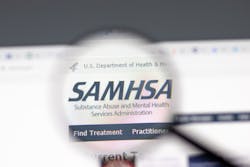More States to Create Certified Community Behavioral Health Clinic Programs
The movement to create more Certified Community Behavioral Health Clinics (CCBHCs), which are certified in 12 states, is continuing to gain momentum. Under provisions of the federal Bipartisan Safer Communities Act (BSCA), the U.S. Department of Health and Human Services will enable up to 10 additional states to create state CCBHC programs under Medicaid every two years starting in 2024.
Launched in 2017, CCBHCs were created to transform mental health and substance use treatment across the country and provide sustainable funding for robust community outpatient mental health treatment. These clinics are required to meet federal standards for the range of services that they provide.
Today there are state-certified CCBHCs in 12 states that have adopted CCBHC as part of Medicaid, with hundreds of additional clinics that have received time-limited Substance Abuse and Mental Health Services Administration CCBHC-Expansion grants to launch or strengthen services aligned with the model, according to a report from the National Council for Mental Wellbeing.
CCBHCs must serve anyone who requests care for mental health or substance use conditions, regardless of their ability to pay, place of residence, or age. They are required to provide a range of services, including crisis services that are available 24 hours a day, 7 days a week, and to provide routine outpatient care within 10 business days after an initial contact to prevent people from languishing on waiting lists. CCBHCs must also ensure access to a comprehensive range of services, providing care coordination when needed and incorporating evidence-based practices and other supports based on a community needs assessment.
SAMHSA recently announced that it has awarded $127.7 million in 128 grants to health clinics in 40 states and Puerto Rico. Each grantee will receive up to $1 million per year for four years. Of the 128, 63 grants totaling $62.8 million were awarded for the CCBHC Planning, Development, and Implementation (CCBHC-PDI) grant to assist clinics to establish and implement new CCBHC programs and 65 grants totaling $64.9 million were awarded for the CCBHC Improvement and Advancement (CCBHC–IA) grant to enhance and support existing CCBHCs.
“The CCBHC model provides a funding structure to expand both the types of services we provide and the population we are able to serve,” said Mark Ishaug, CEO of the Chicago-based Thresholds Center for Mental Health Wellbeing, in a statement. "As a community mental health provider, we consistently see that the need for high-quality mental health services outstrips our capacity to provide them. The CCBHC model is an enormous step forward in our ability to truly meet the needs of our communities with integrated mental and physical healthcare.”
The National Council for Mental Wellbeing recently published resource for community-based provider organizations and states working to leverage the CCBHC model to expand access to high-quality care.
“CCBHCs: A Vision for the Future of Community Behavioral Health Care” outlines a national vision for excellence in community mental health and substance use care and describes how clinics can leverage their CCBHC status to transform the experience of accessing care.
“We must take steps today to improve the quality of health care that will strengthen communities, help people in need and improve health outcomes — tomorrow is too late,” National Council for Mental Wellbeing President and CEO Chuck Ingoglia said, in a statement. “The overwhelming need for mental health and substance use care demands that we embrace innovative ways of structuring, as well as delivering and paying for care. The CCBHC model represents the best solution to accomplish that goal.”


